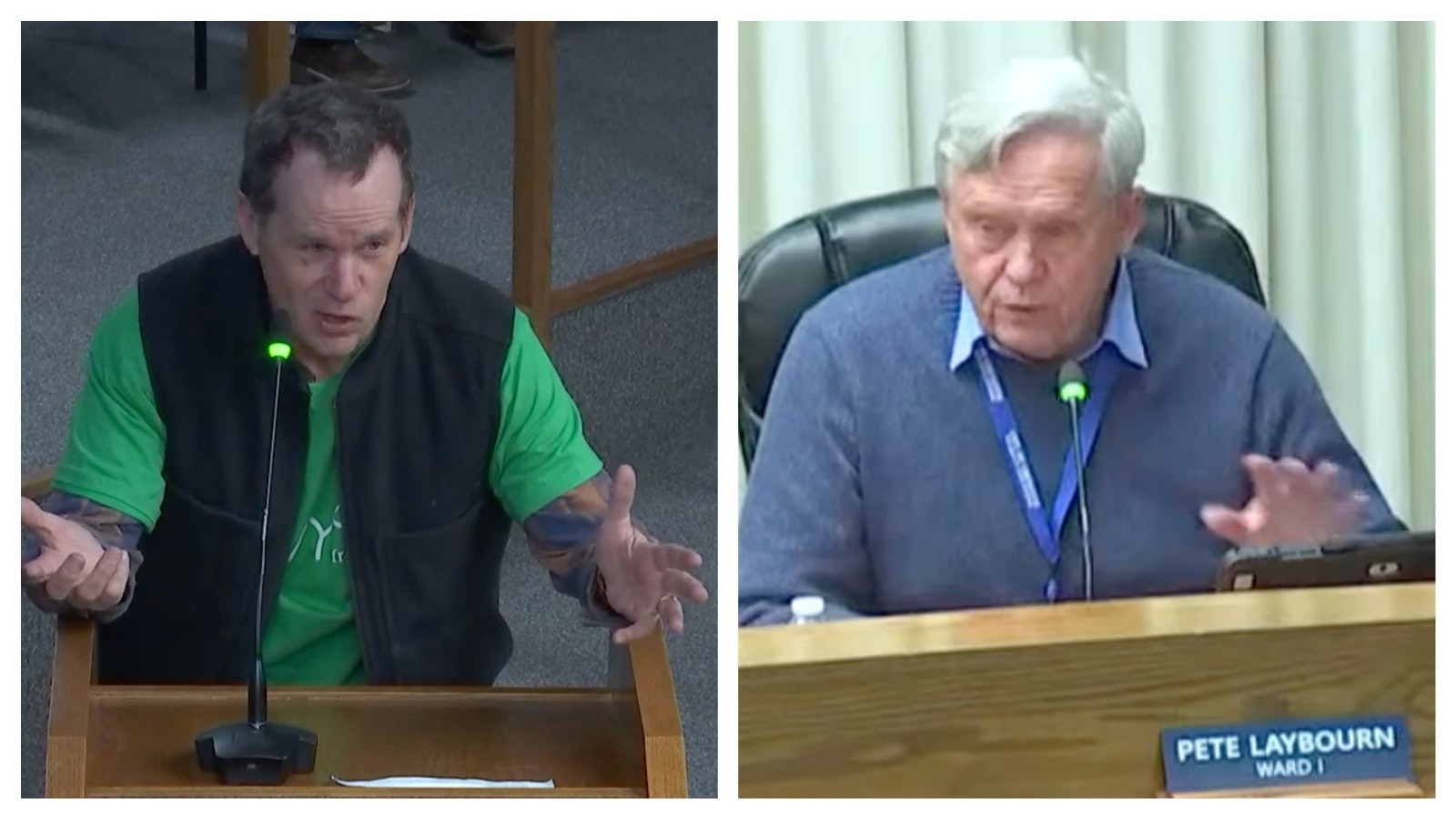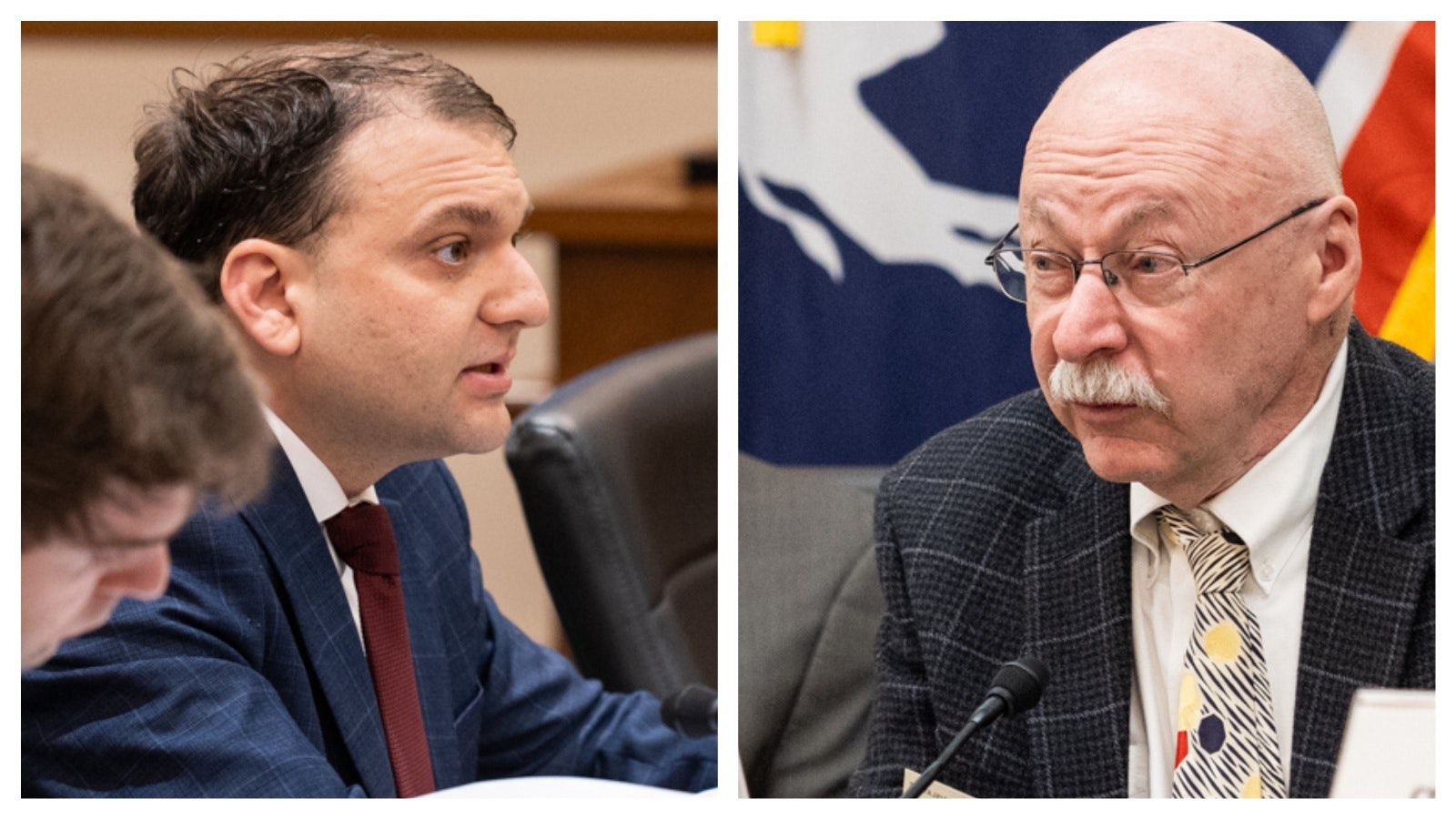After hearing passionate debate Tuesday, the Gillette City Council voted 4-3 to advance a proposed repeal of its so-called "hate crime" ordinance. The repeal must survive two more readings to become effective.
The council in 2023 passed the controversial ordinance, which creates a special crime for threatening or harming a person or damaging their property based on that person's “race, color, religion, sex, sexual orientation, gender identity, gender expression, ethnicity, national origin, ancestry, disability, or age.”
That measure made such offenses a misdemeanor punishable by a fine of $750 and up to 90 days in jail.
Council members voted 4-3 last month to direct City Attorney Sean Brown to draft language to repeal the ordinance. The process of scrapping the malicious harms ordinance requires three public readings and votes before it is officially approved.
Tuesday’s was the first reading.

Public Comment
Several speakers during the public comment session spoke on behalf of people in the LGBTQ community and said the ordinance is an important protection for them given the social backlash they sometimes face.
Gillette teacher Amy Caldwell said she's against repealing the rule because of the example it sets for her students to treat others with respect and kindness.
“When we back away from laws that protect people from hate and intimidation, it teaches the wrong lesson that cruelty and fear can win,” she said. “That’s not the message that I want my students to learn.”
Gillette resident Amber Lewis said she was once assaulted in public by four men who believed she was “too tall to be a real woman.”
That experience proves why the city needs the malicious harms ordinance, she said.
“We need to send a loud and clear message that this kind of action will not be tolerated because we do not repeal any special protections for other marginalized people in our communities,” she said. “The only reason to repeal this is to target the people that are the most vulnerable in our community.”
Fellow Gillette resident Heidi Kennedy also voiced disapproval of repealing the ordinance and highlighted other special protections carved out in state law for certain groups such as law enforcement officers, pregnant women and children.
‘We have already determined that certain crimes, due to the vulnerability or relationship of the victim warrant specific attention,” she said. “Every single one of these laws recognizes a fundamental truth. The nature of the crime and the status of the victim matter.”
Campbell County Cemetery Board member Dean Vomhoff said he approved of repealing the malicious harms ordinance, however, because of the negative attention it drew to the community. He specifically recalled the local library nearly hosting a “transvestite” magician, which sparked fierce debate around hosting LGBTQ-themed events in the area.
“I think the hate crime bill was named appropriately,” he said. “It has caused more hate and division in this town than antifa did the year before the hate crime bill was adopted.”
“Being lesbian or gay is your own choice, but why should you be treated better because of your sexual preference?” he asked.
Dave Cox, who identified himself as a mixed-race combat veteran, said he faced racial prejudice and discrimination for being a member of the military. He said the council should consider replacing the law with a stronger one which includes “veterans,” “communists,” “atheists” and other identities.
“I agree with a lot of people in here that hate, if that is the sole purpose of the crime, needs to be legislated against,” he said. “But unless it protects everybody, it doesn’t really protect anybody.”
Katherine Hunter also spoke in favor of repealing the ordinance and said she believed the title is “emotionally charged” and used to sway the opinions of voters. The measure, she claimed, overrides “the principles of liberty and equality.”
“The city government should have the authority to define hate or decide which citizens deserve more protection,” she said. “Crimes are already illegal regardless of the victim and enhancing punishments based on thoughts, a thought crime, turns justice into a subjective ideology.”
Council Conversation
During council comment, councilmember Jim West clarified to the audience that the measure does not refer to hate crimes but malicious harms. This distinction covers “every single person that walks this planet,” he said.
He also clarified that the measure does not define a hate crime as disagreeing with another and expressed disappointment with those using the definition to spread division. West used the example of two high schools that rival one another in sports.
“Is it good to have cross-town rivalries? Absolutely,” he said. “Is it good to have cross-town battles and hate speech?... That is not tolerance, that is not inclusion.”
Councilmember Heidi Gross said she believed there was a lot of “hyperbole” surrounding the issue and she also pushed back against the use of the term “hate crime.” She challenged community members to act with facts, rather than emotions when debating the decision.
“I hear a lot of folks say that this has caused a lot of division in our community,” she said. “I would love to hear an example of an actual fact of division that was caused in our community because of this ordinance.”
Councilmember Nathan McLeland called on the council to remember its duty of protecting the rights of Gillette’s residents. The ordinance adds what he called “an extra layer of protection” to religious freedom, which McLeland was a major factor in his decision to support it.
“This ordinance doesn’t elevate on group over another,” he said. “It doesn’t specify a particular religion, it doesn’t specify a particular race.”
Mayor Shay Lundvall said he believes the people of Gillette are inherently good and want to live their lives in an upstanding way. Despite this, he said the city must do better in providing safety for everyone.
“As your mayor, I am your mayor for all people,” he said. “We’re not going to have a class, we’re not going to have separation. If you want to be LGBTQ, great, that is your prerogative. If you want to be a Muslim, great, that is your prerogative.”
“I will not stand for any violence in this community for whatever class,” he added. “It is unacceptable and I will not tolerate it.”
Ongoing Debate
West was a part of the council in 2023 when it passed the ordinance. He voted against approving the directive at last month’s city council meeting.
“It was an amazingly eye opening, controversial time when we started the process of doing this malicious harm ordinance, and it really opened my eyes to how much anger we have at each other in just right here in our own community,” West told Cowboy State Daily via phone in October. “At first, I was kind of on the sidelines with it.
"As you know everything is three readings, so ‘let's get it through a reading and then see where it goes,’ and it got ugly.”
Councilmember Jack Clary, who joined the council in January, voted in favor of approving the directive at Tuesday’s meeting. He told Cowboy State Daily he based that decision on a desire to remove hate from his community after seeing it so prevalently displayed in other places throughout the country.
Jackson Walker can be reached at walker@cowboystatedaily.com.






